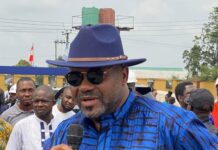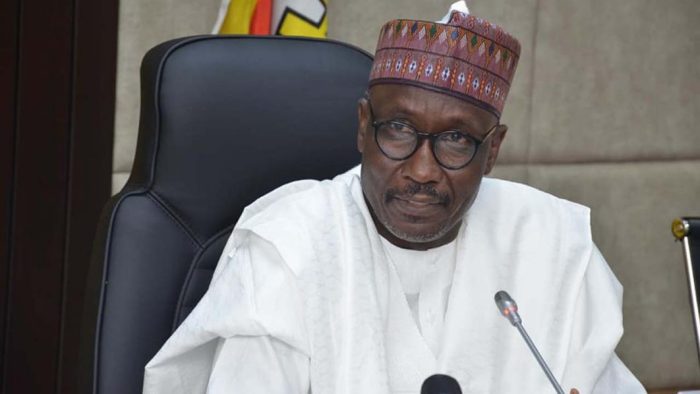 What does Chief Timipre Sylva represent in Nigeria’s march of democracy? As the former Bayelsa State governor turns 49 on Sunday, 7 July, it is appropriate to reflect on the significance of Sylva to our politics. Reason being that his political trajectory has a great deal of insight and symbolism for Nigeria today.
What does Chief Timipre Sylva represent in Nigeria’s march of democracy? As the former Bayelsa State governor turns 49 on Sunday, 7 July, it is appropriate to reflect on the significance of Sylva to our politics. Reason being that his political trajectory has a great deal of insight and symbolism for Nigeria today.
Sylva was unjustly prevented from seeking re-election as Governor of Bayelsa State by mandarins of the Peoples Democratic Party (PDP) acting on instructions from above. It was an unprecedented act of political victimisation that jolted the whole country, and culminated in his exit from office in January last year. In a sense, the barring of Sylva from the Bayelsa gubernatorial race in 2011 puts a humongous question mark on the democratic credentials of the so-called transformationists.
Since Sylva’s exit from power, the baton of his persecution has been handed to the Economic and Financial Crimes Commission (EFCC). Amid an aimless array of charges that it has been unable to prove against him, the commission has descended into a media trial, apparently, targeted at a wholesale destruction of his political career. And without a coherent set of accusations to achieve its goal before a citizenry that has since become wise, EFCC has resorted to sloganeering, falsehood, and slandering. The commission has harassed his wife, friends and political associates.
Some have interpreted the publicity stunt around the Sylva case as an attempt by EFCC to use the charges as leverage in political negotiations for leaders of the government of the day and pecuniary negotiations for the commission’s operatives.
Despite the grave injustice done to him and the continuing harassment, he has remained firm on his convictions, refusing to cut a deal with those behind his ordeal, as is the wont of many politicians in Nigeria.
Convinced that his political ordeals are not so much personal as questions bordering on the integrity of Nigeria’s democracy, Sylva has elected to pursue his victimisation to the fullest extent of the law. He went to court to challenge his strange exclusion from a race he was eminently qualified and certified to run. But the Supreme Court, in its wisdom, declined jurisdiction in the case, in what experts saw as a leeway to pursue the matter at the lower courts. He returned to the lower court, but, surprisingly, the lower court has also declined jurisdiction.
In effect, Sylva’s exclusion from the governorship race in Bayelsa State has not been heard on its own merit by any court of law in Nigeria. The many pertinent questions raised by that unsympathetic and indecent treatment remain unanswered, and constitute a sore point in the country’s political history.
But Sylva is not shaken in his belief in the rule of law and commitment to the democratic institutions. Even though PDP has been unfair to him, he has remained a faithful member of the party.
Yet there is a huge renaissance of doubt about our institutions and fear that if Sylva could be treated this way, it could happen to anybody. The recent shenanigans around the democratic election of the Nigeria Governors’ Forum and the subsequent state offensive against Governor Rotimi Amaechi, the winner of that election, perfectly confirm the fear.
Sylva’s ill-treatment is a huge blemish on the country’s democratic landscape. But it is a cruelty that has only succeeded in firing up his democratic instincts and bolstering his interest in fighting for the continuous extension of the frontiers of freedom.
He is a great leader with great followers who remain convinced that he has a bright future in politics. His image looms large, particularly, in his native Bayelsa State. He is the main issue in Bayelsa politics today: you are either for the supremacy of the voice of the people, the right of the people to choose their leaders without external interference, which Sylva represents, or you are against the people’s right to free choice.
For society to make progress, Sylva believes, all voices must be heard. This is a political ideal he has been committed to, but one that those behind his current political tribulations do not share and are prepared to utterly suppress. The cost has been a sorry tale for a state that witnessed its most remarkable development since its creation under Sylva. After he left office, the state has stagnated, with gloom and doom everywhere.
On the national scene, the brutish suppression of the former governor and the ideals he represents has continued to haunt and prick the consciences of many, including those who supervised the immoral conduct.
Despite this untold injustice and provocation to him and his supporters, Sylva has taken everything with calm and grace. On several occasions, his teeming support base has indicated interest in seeking justice on the streets. But he would not support that. He has unshakable belief in the democratic institutions. And he would not want to provide the power usurpers a rationalisation to swoop on his supporters.
At the peak of the political crisis, Sylva deliberately avoided Yenagoa to forestall a situation where his supporters, who would ordinarily come out to welcome him, would be targeted by his opponents. Since leaving office in January 2012, he has not stepped on Bayelsa soil.
He loves peace and is always prepared to go the extra mile to find it. It is on record that what eventually metamorphosed into the Presidential Amnesty Programme and, indeed, the seeming peace now being enjoyed in the Niger Delta was a memo that Sylva sent to the late President Umaru Musa Yar’Adua. That history remains indelible despite the deliberate attempts to obliterate it.
Sylva is a man with a history and a future. He is an iconic politician. He represents the future of hope – a future not defined by our fears but by our hope.
Buokoribo is Media Adviser and Private Secretary to Sylva
Sylva, The Iconic Politician, At 49,By Doifie Buokoribo
Follow Us On WhatsApp



